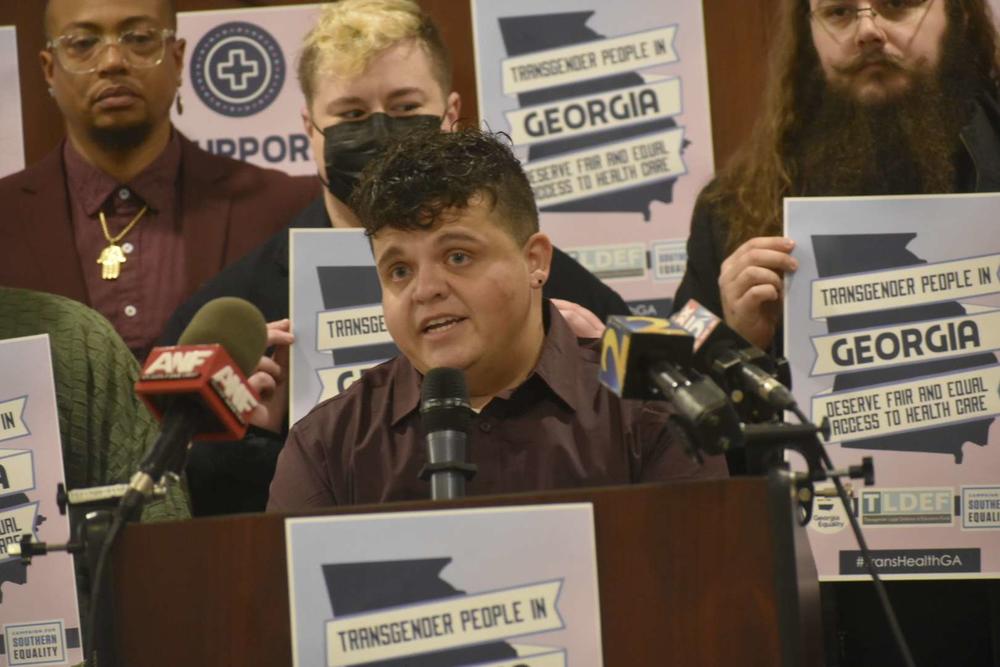
Caption
Micah Rich, a staff accountant at the Georgia Department of Audits and Accounts, is part of a group suing the state over its ban on treatments for state employees seeking care in relation to gender transphoria.
Credit: Ross Williams / Georgia Recorder

